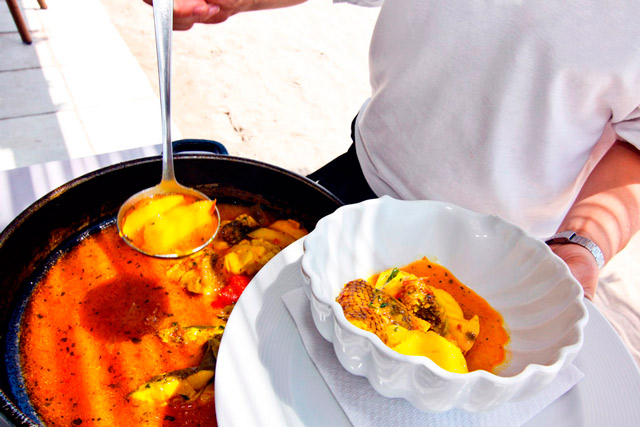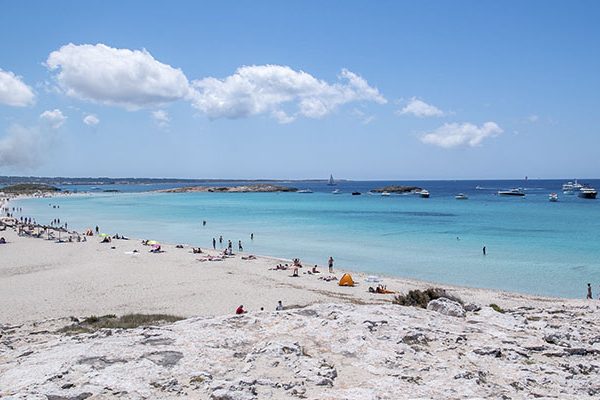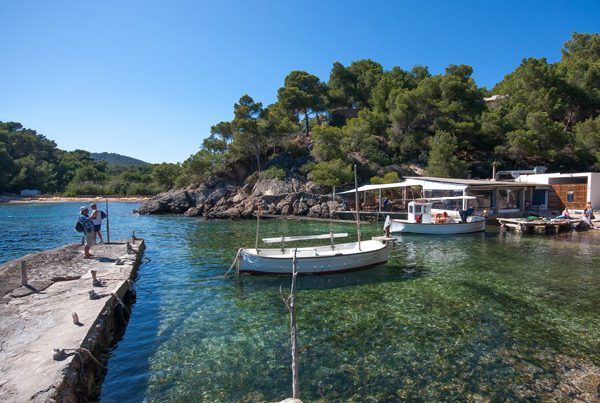What most people know about Ibiza is that it’s a beautiful Mediterranean island ideal for enjoying the seaside, good food and fun any time of the day. But, did you know that Ibiza has many more surprises?

Ibizan geography and culture is so vast that there are many details and curious facts that pass unnoticed by the average visitor, but that are very interesting for those looking to discover something more. Learning more about this wonderful island is always interesting, so that’s why we want to show you four curious things you should know about our island.
The Tradition of ‘Ball Pagés’
Most folklore scholars can’t find the origin of the typical Pitiusan dance, one of the oldest ones in the country. Many people don’t know that in reality, beyond the scenic beauty of the dance, ‘ball pagés’ is a courtship ritual where the woman moves in spirals as the man jumps striding around her and without losing eye contact. Formerly these dances were held in festivities and in the ‘fiestas de los pozos’ (party of the wells) that happened during the summer. Normally the older attendees began the dancing with “sa curta” (the short one) and then everyone joined in with the rhythm of “sa llarga” (the long one) (these are the two time varieties). Usually, the male dancer can dance around several other female dancers. But there is a special dance modality known as “ses nou rodades” of much slower pace in which the only couple slowly get closer to each other until they contact each other. This modality was usually reserved for special events, such as a wedding.
The fashionable ‘capazos’
This rustic basket that is becoming more common on the beaches of Ibiza has a much older origin than its current trendy use. The ‘capazos’ or ‘senallons’, as they’re known in Ibicenco language, are baskets with very practical handles ideal to do the shopping, carry your towel and beach items and can even be used as a large purse or carrying bag. But in the old days these baskets were used by the ‘payeses’ (the native Ibizan peasants) to carry anything they needed to the field. They were easily handmade in any house, as back then, everyone knew how to work the esparto grass, the material with which the baskets were made. This plant was collected in a special place: S’Espartà, an islet off the west coast of Ibiza where it grows in abundance, hence the name. Today only few people have permission to go on the island and collect esparto for their use.
The secrets of the cave of Sant Miquel
There are amazing sites on the island with their own history. This is the case of the cave of Sant Miquel, with over 100,000 years of history, a very interesting place to visit located on the cliffs of Port de Sant Miquel. In the present it is open to visitors and it takes about 40 minutes to tour the inside, where you can enjoy the waterfalls and the display of light and sound that gives a special atmosphere to the space. But there was a time when this cave served different purposes. It was the perfect hideout for smugglers in the early twentieth century, when they brought the goods by sea and kept them hidden in this place until it was safe to move it elsewhere. Today there are still marks on the walls drawn by the smugglers to trace other exit routes. A curious spot on the island with an even more curious history.
Recipes from the High Seas
If Ibizan cuisine is known for something that is for its mastery of fish based dishes, one of the best quality foods one can find in Ibiza. One of the most popular dishes is the ‘Guisat de Peix’ (typical Ibizan fish stew), a simple but full of flavour dish. The secret to making a delicious ‘guisat de peix’ is to use at least three varieties of rockfish, although the more variety the better. The interesting fact about these kind of recipes is their origin, as they’re dishes that were created on board of fishing boats while at sea. The fishermen used the spare catch to prepare delicacies like this to avoid having to go back to land. Potatoes and vegetables were added to the fish and the result was a delicious and mouthwatering fish stew as one can rarely find a fresher fish.








